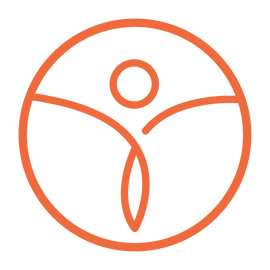|
Patients who have been with us for many years will have almost certainly either seen or heard of David Styles. He has had a continued presence in many aspects of the clinic for over two decades, and has a been our most senior practitioner since March 1999, primarily working from our Truro location. He has recently announced that he will be retiring on the 9th of December (some of you may recall that David did attempt to retire once, but his enjoyment of his work proved to be too much of a pull, and so the attempt didn't last long!). This news will surely come as bittersweet to those of us who have known David for as long as we have. Though it will be sad to see him go, he has fully deserved his retirement, and we hope that he attains some well-earned rest and relaxation. Thank you for everything, David.
0 Comments
Manual therapy has been used for centuries to help alleviate pain and promote relaxation. In recent years, research has shown that regular massage can also be beneficial for overall stress and muscular health.
Stress can have a significant impact on the body, both physically and mentally. When we experience stress, our bodies release cortisol, a hormone that can cause inflammation and weaken the immune system. Over time, chronic stress can lead to a host of health problems, including high blood pressure, heart disease, and depression. Manual therapy has been shown to reduce the levels of cortisol in the body, which can help to alleviate the symptoms of stress. In a study published in the Journal of Alternative and Complementary Medicine, participants who received a 45-minute massage experienced a significant reduction in cortisol levels compared to those who did not receive a massage. Regular massage can also help to improve muscular health. When we experience stress, our muscles can become tense and sore, leading to pain and discomfort. Manual therapy can help to relax the muscles, reducing tension and promoting healing. In a study published in the International Journal of Neuroscience, participants who received manual therapy experienced a significant decrease in muscle pain and an increase in muscle function. The researchers concluded that manual therapy can be an effective treatment for musculoskeletal pain and dysfunction. Regular manual therapy can also help to improve flexibility and range of motion. When our muscles become tense and tight, it can be difficult to move freely. Manual therapy can help to release tension and improve flexibility, making it easier to move and perform daily activities. In a study published in the Journal of Bodywork and Movement Therapies, participants who received manual therapy experienced a significant increase in range of motion compared to those who did not receive massage. In conclusion, regular manual therapy can be a beneficial addition to a stress management and muscular health routine. The reduction of cortisol levels, alleviation of muscle pain and tension, and improvement of flexibility are just a few of the potential benefits of manual therapy. If you are interested in incorporating manual therapy into your wellness routine, be sure to speak with one of our practitioners to discuss your individual needs and preferences. Sources: • Field, T., et al. (2005). Cortisol decreases and serotonin and dopamine increase following massage therapy. Journal of Alternative and Complementary Medicine, 11(1), 109-117. • Moyer, C.A., et al. (2011). A randomized controlled trial of massage therapy versus Swedish massage in the treatment of chronic low back pain. International Journal of Neuroscience, 121(8), 534-541. • Sullivan, M.J., et al. (2001). The treatment of neck and low back pain with massage therapy. Journal of Bodywork and Movement Therapies, 5(4), 261-266. |
Archives |
Our Locations.
Truro, Cornwall TR1 2HX, England, UK. |
St Austell, Cornwall PL25 4QL, England, UK. |
Truro & St Austell Chiropractic Clinics |
Here for over 50 years, we are an established practice in Cornwall with a reputation for giving our patients long-term relief from a range of conditions. Our clinics are located in convenient positions in Truro and St Austell, with free parking and full facilities at each site.
Get in touch with us today to make your booking, or for any other questions and enquiries. We look forward to hearing from you! |
© Truro & St Austell Chiropractic Clinics. Website by Pure Cornish Design. Back Pain Clinic Ltd and Truro Chiropractic Clinic Ltd are registered as limited companies in England and Wales under company number 4481906 and 12958624 respectively. Registered Companies Address: 28 Falmouth Road, Truro, Cornwall, TR1 2HX.
For access to our GDPR statements, please click here: gdpr_statement.pdf
For access to our GDPR statements, please click here: gdpr_statement.pdf




 RSS Feed
RSS Feed


